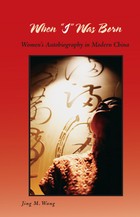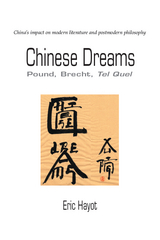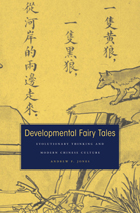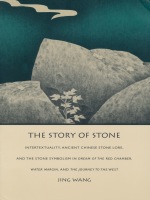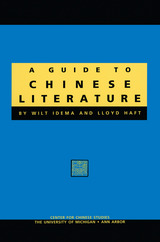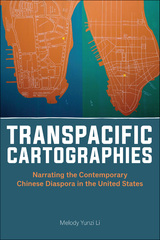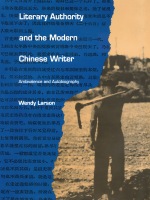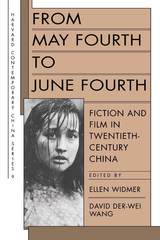When “I” Was Born: Women’s Autobiography in Modern China
University of Wisconsin Press, 2008
Cloth: 978-0-299-22510-0
Library of Congress Classification PL2278.W33 2008
Dewey Decimal Classification 895.10992870904
Cloth: 978-0-299-22510-0
Library of Congress Classification PL2278.W33 2008
Dewey Decimal Classification 895.10992870904
ABOUT THIS BOOK | AUTHOR BIOGRAPHY | REVIEWS | TOC | EXCERPT
ABOUT THIS BOOK
When “I” Was Born: Women’s Autobiography in Modern China reclaims the voices of these particular writers, voices that have been misinterpreted and overlooked for decades. Tracing women writers as they move from autobiographical fiction, often self-revelatory and personal, to explicit autobiographies that focused on women’s roles in public life, Jing M. Wang reveals the factors that propelled this literary movement, the roles that liberal translators and their renditions of Western life stories played, and the way in which these women writers redefined writing and gender in the stories they told. But Wang reveals another story as well: the evolving history and identity of women in modern Chinese society. When “I” Was Born adds to a growing body of important work in Chinese history and culture, women’s studies, and autobiography in a global context.
Writers discussed include Xie Bingying, Zhang Ailing, Yu Yinzi, Fei Pu, Lu Meiyen, Feng Heyi, Ye Qian, Bai Wei, Shi Wen, Fan Xiulin, Su Xuelin, and Lu Yin.
In the period between the 1920s and 1940s, a genre emerged in Chinese literature that would reveal crucial contradictions in Chinese culture that still exist today. At a time of intense political conflict, Chinese women began to write autobiography, a genre that focused on personal identity and self-exploration rather than the national, collective identity that the country was championing.
When “I” Was Born: Women’s Autobiography in Modern China reclaims the voices of these particular writers, voices that have been misinterpreted and overlooked for decades. Tracing women writers as they move from autobiographical fiction, often self-revelatory and personal, to explicit autobiographies that focused on women’s roles in public life, Jing M. Wang reveals the factors that propelled this literary movement, the roles that liberal translators and their renditions of Western life stories played, and the way in which these women writers redefined writing and gender in the stories they told. But Wang reveals another story as well: the evolving history and identity of women in modern Chinese society. When “I” Was Born adds to a growing body of important work in Chinese history and culture, women’s studies, and autobiography in a global context.
Writers discussed include Xie Bingying, Zhang Ailing, Yu Yinzi, Fei Pu, Lu Meiyen, Feng Heyi, Ye Qian, Bai Wei, Shi Wen, Fan Xiulin, Su Xuelin, and Lu Yin.
See other books on: Autobiography | Chinese | Modern China | When | Women authors, Chinese
See other titles from University of Wisconsin Press
